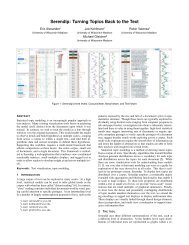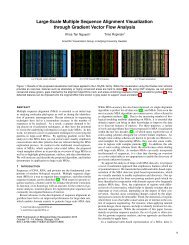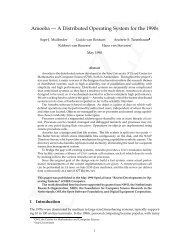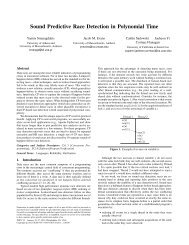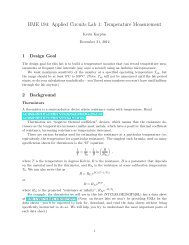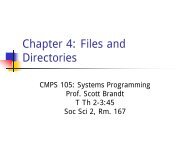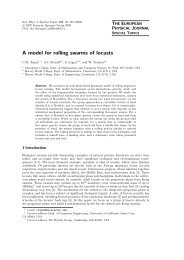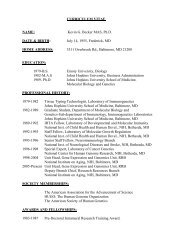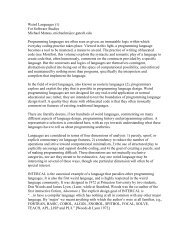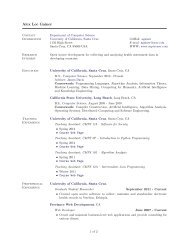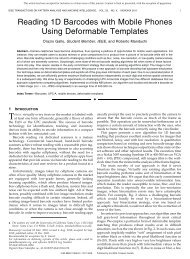A FAST AND ROBUST FRAMEWORK FOR IMAGE FUSION AND ...
A FAST AND ROBUST FRAMEWORK FOR IMAGE FUSION AND ...
A FAST AND ROBUST FRAMEWORK FOR IMAGE FUSION AND ...
Create successful ePaper yourself
Turn your PDF publications into a flip-book with our unique Google optimized e-Paper software.
Chapter 1<br />
Introduction<br />
On the path to designing high resolution imaging systems, one quickly runs into the problem<br />
of diminishing returns. Specifically, the imaging chips and optical components necessary to<br />
capture very high resolution images become prohibitively expensive, costing in the millions of<br />
dollars for scientific applications [5]. Hence, there is a growing interest in multi-frame image<br />
reconstruction algorithms that compensate for the shortcomings of the imaging systems. Such<br />
methods can achieve high-quality images using less expensive imaging chips and optical com-<br />
ponents by capturing multiple images and fusing them. The application of such algorithms will<br />
certainly continue to proliferate in any situation where high quality optical imaging systems<br />
cannot be incorporated or are too expensive to utilize.<br />
A block diagram representation of the problem in hand is illustrated in Figure 1.1,<br />
where a set of images are captured by a typical imaging system (e.g. a digital camcorder).<br />
As the relative motion between the scene and the camera, the readout noise of the electronic<br />
imaging sensor (e.g. the CCD), and possibly the optical lens characteristics change through<br />
the time, each estimated image captures some unique characteristic of the underlying original<br />
image.<br />
In this thesis, we investigate a multi-frame image reconstruction framework for fusing<br />
the information of these low-quality images to achieve an image (or a set of images) with higher<br />
1



